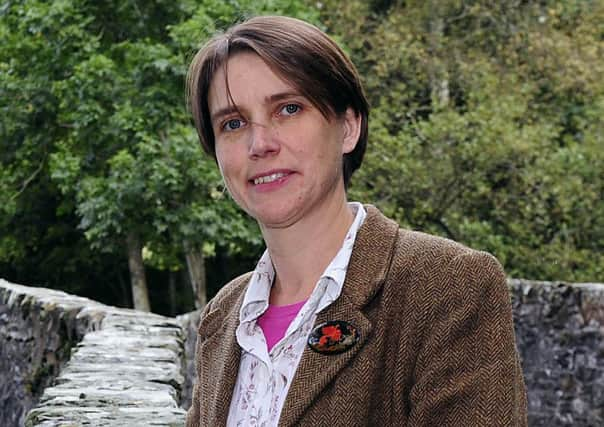Meeting weighs up Council Tax alternatives


Just 30 people turned up for a well-advertised public meeting organised in Galashiels last week by the independent body charged to come up with an alternative and report to the Scottish Government early next year.
But that turnout at the Volunteer Hall was the best attended session of its kind in Scotland, according to Councillor Catriona Bhatia, who chaired the meeting and is the only Borderer on the Commission on Local Tax Reform.
Advertisement
Hide AdAdvertisement
Hide Ad“Those who came along were mainly community councillors who had clearly given a lot of thought to the issues of replacing a Council Tax system which, though based on property, is now widely acknowledged as unfair,” reflected Councillor Bhatia.
Last week’s audience, such as it was, was split into three discussion groups with each asked to consider one of three broad alternatives – Property Tax, Land Value Tax and Local Income Tax.
“As one would expect, a Property Tax was most readily understood and is administratively quite simple to collect, but without a long overdue revaluation, which would undoubtedly result in both winners and losers, it would not be progressive,” said Councillor Bhatia.
“Land Value Tax, which is based on an assessment of someone’s land as well as property, was considered the most difficult to understand although it is used in a number of European countries and also Australia.
Advertisement
Hide AdAdvertisement
Hide Ad“Although this was probably the least popular of the options, on the plus side it would help prevent land banking and may free up brownfield sites for housing in preference to greenfield sites.
“Local Income Tax, based on PAYE and ability to pay, was considered the fairest alternative, although revenues would be most likely to fluctuate with economic cycles.
“Although no consensus emerged from the options discussed, all the feedback will be considered by the commission when we formulate our final report at the end of this year.”
Council Tax, which was introduced in 1993, raises around £55m a year to support the spending of Scottish Borders Council and has been frozen for the past eight years.
The Council Tax bandings are based on 1991 house valuations.